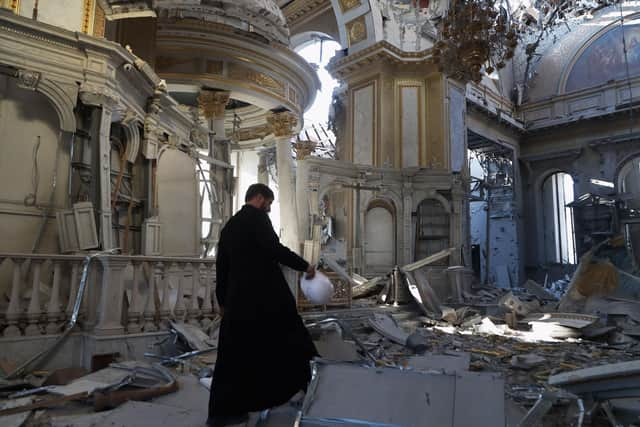Book review: Night Train to Odesa, by Jen Stout
The public’s appetite for news of a continuing war tends to flag – understandably, perhaps, when there seems to be something close to stalemate. That’s how the war in Ukraine looks now, more than two years after the Russian invasion, Vladimir Putin’s attempt to conquer a now independent country that was once part of the old USSR. His first thrust failed, humiliatingly, and the brutality of Russian troops inspired Ukrainian patriotism. The West responded by supplying the Ukrainian government with weapons and aid. For a time, a Russian defeat seemed possible. However, last summer’s Ukrainian offensive failed. Cities and towns are still being bombed. Further, urgently needed Western aid is not forthcoming in sufficient scale. We may be in for a prolonged war, at best a stalemate, and consequently the conflict is rarely at the top of the news agenda.
This makes Jen Stout’s memoir of her time as a freelance reporter in Ukraine during the first year of the war all the more important. It is a timely reminder of what is at stake. In her last chapter, she recalls a Ukrainian friend, a judge and army volunteer, telling her “If we don’t win now, Ukraine will never exist again. It will be destroyed. It will become part of Russia” – Putin’s Russia, a criminal state.
Advertisement
Hide AdStout, a Shetlander and Russian speaker was on a nine-month fellowship in Russia when Putin’s “special military operation” was launched, and, having left Russia, first crossed into Ukraine by way of Romania. (The publishers have provided only one rather sketchy map; other, more detailed ones would have helped readers.) Entering in the south, unlike most western Europeans, she was in the part of the country where most of the people were Russian speakers, though with Ukrainian as a second language. She was occupied first with helping refugees fleeing the country with their children, and reporting on them. In these early months, Russia – already occupying parts of the Donbas – was directing its main attack at Kharkiv and Kyiv. At that time there were people in the south of the country who regarded themselves as Russian; there are fewer such people now.


Though there is and has been fierce fighting – fighting which one may describe as the sort of war that veterans of 1914-18 would have recognized – the conflict as experienced now and reported on admirably by Stout is characteristically a war against civilians, There is nowhere and no-one in Ukraine not at risk or free from military action. If Stout is mostly reporting from what we used to call the Home Front, there is now, in this age of drones and missiles, no such thing. Stout writes movingly about the courage and resilience of a people at war. War may create its own illusions, but it dispels others. The Mayor of Odesa tells Stout that some older people initially found it difficult to believe that Russian soldiers “could so ruthlessly kill our people” but no longer. “In Odesa, we are Russian-speaking patriots of Ukraine.”
Because there is no strong narrative, no argument put forth, this is a difficult book to summarise. It may be called a sequence of semi-contained set-pieces, a running stream of experiences. It is perhaps best described as a mosaic, a picture composed of different coloured tiles. It is sad, moving and yet also encouraging because Stout writes admirably, with intelligence, sympathy and understanding. It is a celebration of love, courage and care for others; hers is a world in which kindness holds it own. Its subtitle is “Covering the Human Cost of Russia’s War”, and this is what she does.
If the publishers have neglected to provide the maps their readers might wish for, they have done their author proud in the pre-publication recommendations they have secured. The praise is not only justified, but comes also from authors and war correspondents one has reason to admire. Stout has written a memoir of the war in Ukraine which more than justifies their praise. It is very good indeed.
Night Train To Odesa, by Jen Stout, Polygon, £17.99